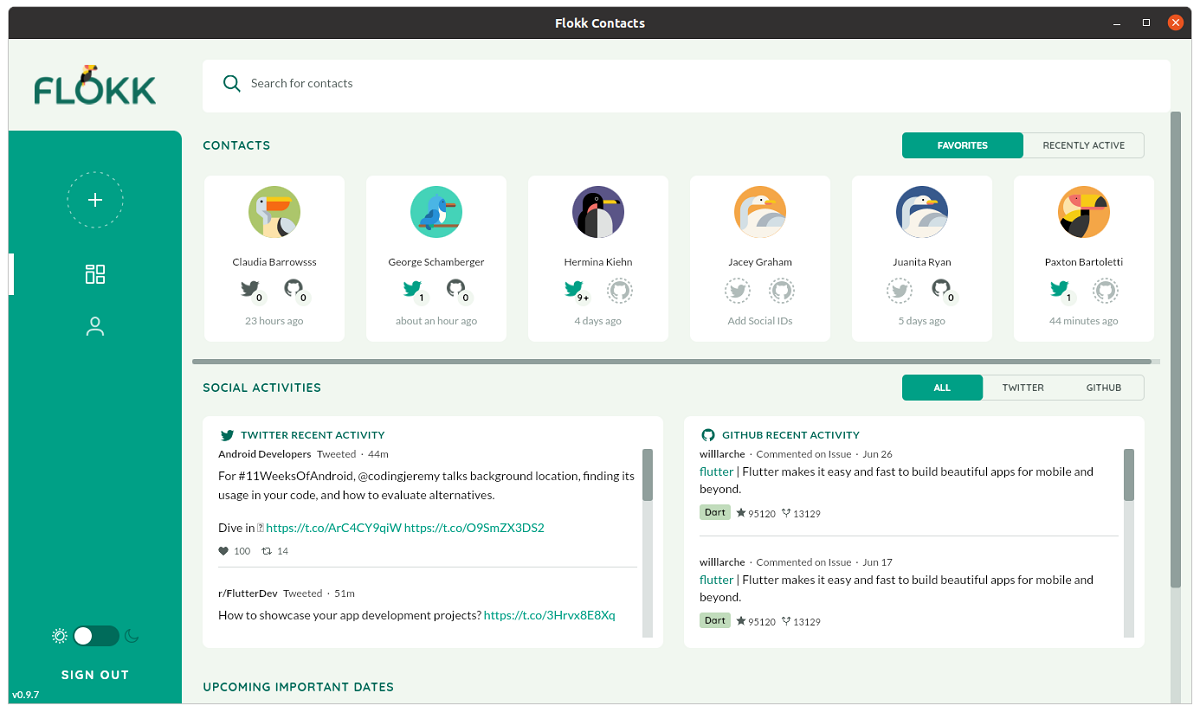
Google and Canonical unveiled recently they have taken an initiative together to support the applications development frame-based graphs Linux desktop «Flutter».
For those who are unfamiliar with this construction framework, you should know that the Flutter user interface design it is written in Dart language (the runtime engine for running applications is written in C ++), and this allows you to create universal applications that run on different platforms and is considered an alternative to React Native.
Despite the presence of the Flutter SDK for Linux, so far it has only been used for mobile app development and it was not compatible with the Linux desktop application assembly.
Last year, Google announced its intention to add Flutter the ability to develop complete desktop programs and introduced an alpha version to develop such programs for macOS.
Flutter now expands with the ability to develop applications desktop for Linux. Support for developing Windows applications is still in the early prototype stage.
Google's goal for Flutter has always been to provide a portable framework for building beautiful user interfaces that run at native speeds no matter what platform you're targeting.
To validate this ability, We started by focusing on mobile platforms, Android and iOS, where we have seen more than 80,000 fast and beautiful Flutter apps published on Google Play.
To draw the interface on Linux, a link based on the GTK library is used (They promise to add support for Qt and other toolkits later). In addition to the native Dart Flutter language, which creates widgets, applications can use the Dart Foreign Function interface to call C / C ++ code and access all the functions of the Linux platform.
There were several things about Flutter that were exciting for Canonical:
- Rapid growth of the app developer ecosystem
- Multiplatform support
- Highly optimized native applications
- Modern UI framework that supports declarative, reactive, and composable widgets
- Rich development platform with Visual Studio Code, Android Studio and IntelliJ
Support for Linux application development is offered in the latest alpha version of the Flutter SDK, which also implements the ability to publish Linux applications in the Snap Store directory. In the tuning format, you can find the Flutter SDK assembly.
To develop applications based on Flutter, it is proposed to use the Visual Studio Code code editor or the IntelliJ and Android Studio development environments.
For a long time, our vision for Flutter is to power platforms. We've already seen this manifesto on Google with products like the Assistant, so now we're thrilled to see others leverage Flutter to power more platforms. Today we are pleased to jointly announce the availability of Linux alpha for Flutter together with Canonical, the publisher of Ubuntu, the world's most popular desktop Linux distribution.
As an example of Flutter-based Linux programs, the application is proposed Flock Contacts to work with the Google Contacts address book.
In addition, three Flutter plugins with Linux support are published in the pub.dev directory: url_launcher to open url in default browser, shared_preferences to save settings between sessions and path_provider to define typical directories (downloads, images, videos, etc.)
Google's initial announcement began with an alpha version compatible with macOS and plans for Linux and Windows.
Canonical is making a significant investment in Flutter by dedicating a team of developers to work alongside Google developers to bring the best Flutter experience to most Linux distributions.
Canonical will continue to collaborate with Google to further improve Linux support and maintain feature parity with the other supported platforms.
Si you want to know more about the ad, You can visit Canonical's statement at the following link.
Source: https://ubuntu.com/